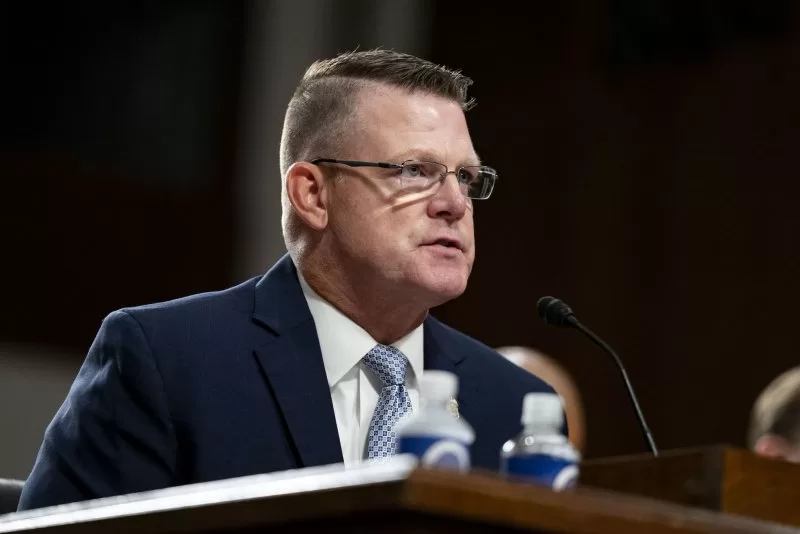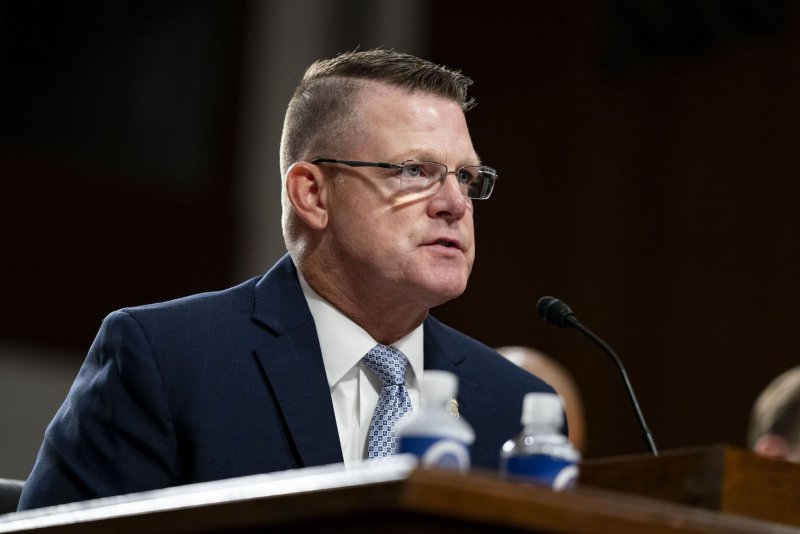Acting Secret Service Director Ronald Rowe said an internal investigation of the agency’s “failures” during the July 13 assassination attempt against former President Donald Trump in Butler, Pa., has led to a “paradigm shift” in its operations. File Photo by Bonnie Cash/UPI |
License PhotoSept. 20 (UPI) — The Secret Service’s acting director said Friday the agency is instituting a “paradigm shift” in how it carries out its mission in the wake of its own “failures” during the July 13 assassination attempt against Donald Trump.
During an update on the status of the agency’s internal probe of the incident at a campaign rally in the Butler, Pa., Acting Secret Service Director Ronald Rowe said the preliminary results of its “mission assurance investigation” have confirmed that the agency’s own failures allowed a would-be assassin to fire off shots at Trump from a nearby rooftop.
Rowe told reporters the nearly completed investigation of the Butler incident shows the assassination attempt represented “a failure on the part of the United States Secret Service.
“It’s important that we hold ourselves to account for the failures of July 13th and that we use the lessons learned to make sure that we do not have another mission failure like this again,” he said, adding that due to the “hyper-dynamic threat environment” now facing U.S. presidents, presidential candidates and others, he has instituted “a shift in paradigm in how we conduct our operations.”
The need for improvements in communications and other key aspects of the Secret Service’s operational capabilities was again in evidence when a second assassination attempt against Trump at his Florida golf course was foiled earlier this week.
“As was demonstrated on Sunday in West Palm Beach, the threat level is evolving and requires this paradigm shift,” Rowe said.
The acting director on Friday also confirmed unspecified Secret Service personnel would be disciplined due to the Butler incident and provided more details about how a breakdown in communications between the agency and local law enforcement officials provided an opportunity for a sniper to shoot at the former president with a long-range rifle, grazing his ear with a bullet.
“Line-of-sight issues were acknowledged but not properly mitigated,” Rowe said, while confirming earlier reports that the Secret Service gave too much “leeway” to local authorities in securing the site. He said the agency will no longer allow others to do so moving forward.
His remarks came just hours after the House of Representatives unanimously passed legislation that aimed at increasing Secret Service protection for the two presidential nominees and their running mates.
If signed into law, the measure would mandate the agency to “apply the same standards” for determining how many agents are required to protect President Joe Biden to both the Republican candidate, Trump, and Vice President Kamala Harris, the Democratic candidate.
Rowe declined to comment on the legislation, saying he hadn’t had time to study its details.

